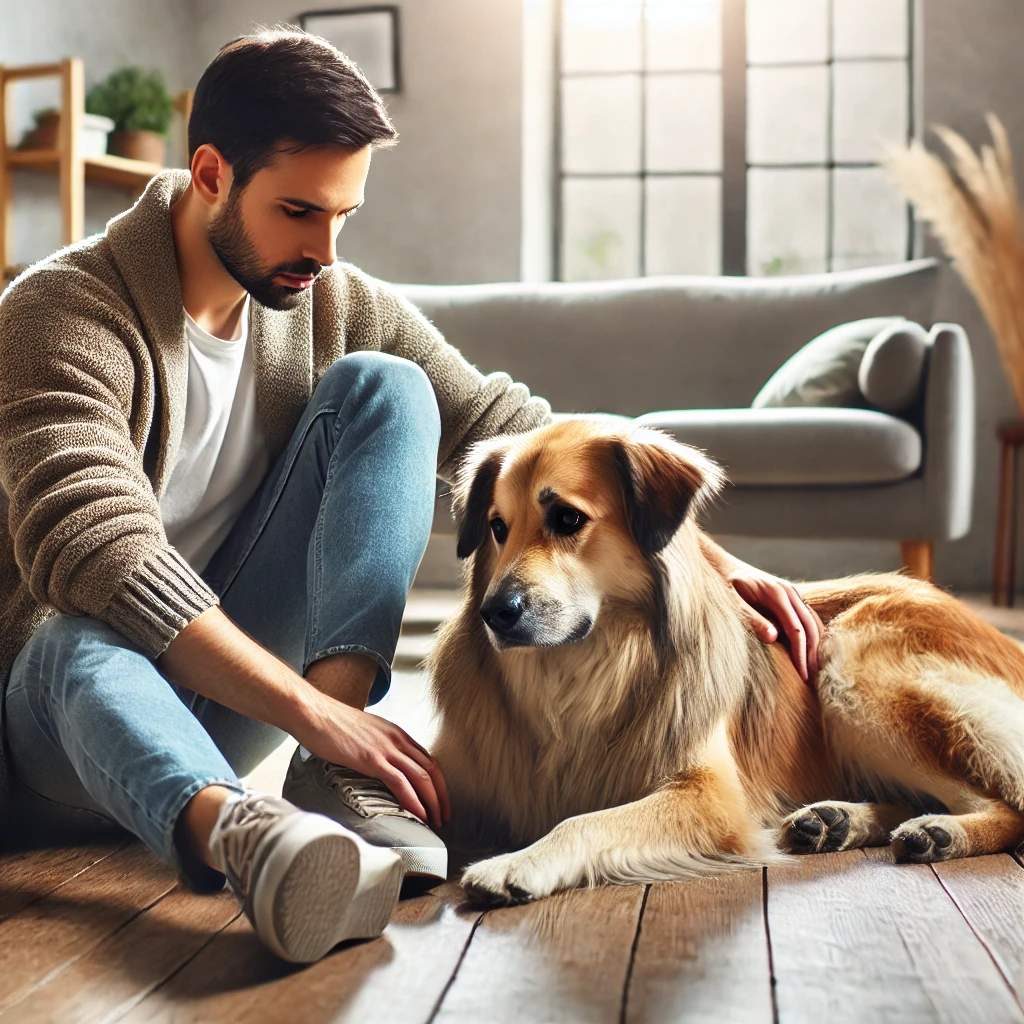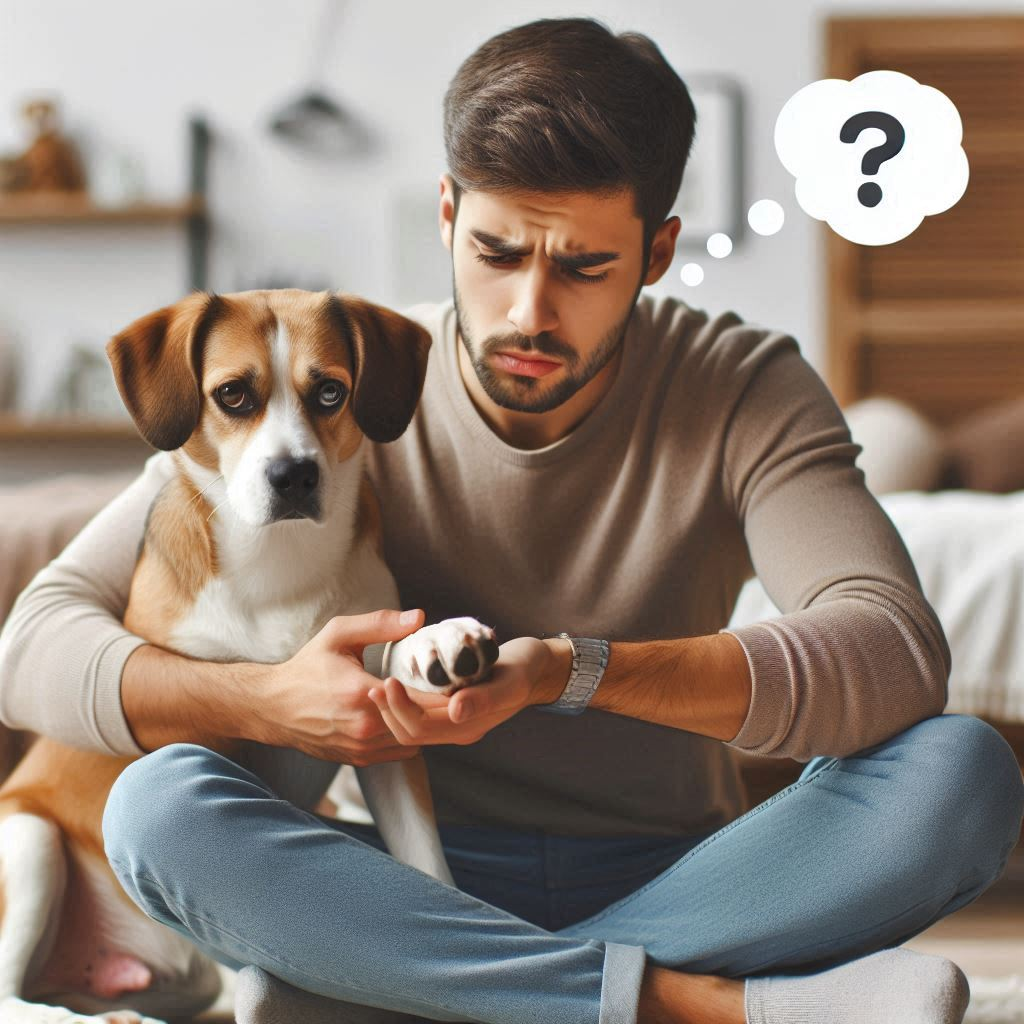It is normal for pet owners start to worry about their pets, but learning when to show genuine concern can help you maintain your dog’s health and happiness.
Like people, dogs can go through a number of behavioral and physical changes that might or might not call for medical attention right away.
While certain changes are expected, others may be warning signs of a more serious problem.
Let us advise you in identifying warning indications and determining when to respond.

When Should I Start to Worry About My Dog?
Changes in Eating and Drinking Habits
In dogs, a sudden lack of appetite or extreme thirst may start to worry underlying medical problems.
A dog may occasionally skip meals, particularly in hot weather or after intense effort, but a persistent unwillingness to eat should cause for concern.
Your dog may be suffering from kidney illness, diabetes, or gastrointestinal problems if they have not eaten in over a day or are extremely thirsty.
Elevated alcohol consumption, especially in conjunction with frequent urination, could indicate health issues such as renal disease or diabetes.
It is necessary to keep an eye on things and see your veterinarian if your dog continues to drink water too quickly.
Unexplained Weight Loss or Gain
Dog weight swings that are significant are never to be ignored since they may indicate the presence of dangerous illnesses including diabetes, thyroid issues, or cancer.
Even if your dog is eating healthily, sudden weight loss could be a sign of parasites, intestinal troubles, or metabolic disorders.
However, sudden weight gain may indicate an imbalance in the thyroid, which can impact your dog’s metabolism and general energy levels and you should start to worry.
Monitoring your dog’s weight over time allows you to identify minor changes before they worsen.
Frequent veterinary examinations may help in identifying these issues early on.
Lethargy or Unusual Fatigue
Your dog may be ill or uncomfortable if they appear extremely fatigued or if they no longer seem interested in the things they used to enjoy.
Anything from simple infections to more serious problems like heart disease, anemia, or internal pain can make a dog sleepy.
Even while it is common for dogs to slow down with age or after a demanding day, ongoing fatigue and low energy levels need to be addressed.
Keep an eye out for symptoms like trouble getting up, refusal to play, or prolonged periods of sleep longer than normal.
It is necessary to see your veterinarian to rule out any underlying health issues if your dog exhibits signs of fatigue for longer than a day or two.
Changes in Behavior or Temperament
A sudden shift in your dog’s behavior, including dislike or hiding may indicate a medical condition or psychological discomfort.
Dogs that are hurting or not feeling well may become anxious. Dogs with cognitive problems, for this reason, may appear confused or nervous, whereas dogs with arthritis may become more defensive if their joints pain.
- A shift in behavior, like aggression or hiding from social situations, could indicate a more serious issue for your dog than merely a mood swing.
- It is important start to worry to take into consideration any recent changes to their habit, food, or surroundings, but it is also critical to consult a veterinarian if there is not a clear explanation.
Read: What does it mean when your dog is biting you?
Vomiting, Diarrhea, or Digestive Issues
While occasional vomiting or diarrhea is common in dogs, more serious health issues may be indicated start to worry if the condition worsens or occurs more frequently.
Stress, a slight virus, or eating something unusual may all lead to short-term digestive problems. On the other hand, long-term diarrhea, vomiting, or post-meal discomfort should not be disregarded.
It is necessary to contact the veterinarian at away if your pet shows any of these symptoms, including blood in the stool, persistent vomiting, or loss of appetite.
An urgent medical center may be necessary if digestive issues indicate pancreatitis, food allergies, or even challenges.
Skin, Coat, or Eye Changes
Skin, hair, or eye changes in your dog may be the initial indication of infections, allergies, or other underlying medical issues.
Dogs in good health usually have glossy coats and clean eyes.
If your dog scratches a lot, has bald spots on their coat, or appears to have an allergy, skin infection, or even parasites like fleas and ticks, these symptoms could be signs of an allergy.
- Similar to this, any obvious changes in your dog’s eyes, including cloudiness, redness, or excessive discharge, may indicate cataracts, eye infections, or other medical issues that need to be treated.
- It is key to monitor these physical changes since prompt intervention can stop these issues from getting worse.

Breathing Difficulties or Persistent Coughing
As they may be signs of respiratory disorders, breathing problems, like heavy panting or prolonged coughing, should always start to worry and be treated seriously.
Dogs pant to help themselves stay cool, but excessive panting especially while they are at rest may be an indication of heatstroke, cardiac difficulties, or lung problems.
- Frequent coughing in your dog may indicate heart illness, kennel cough, or even a collapsing trachea.
- A visit to the veterinarian should be made right away if your pet exhibits any irregular respiratory patterns, wheezing, or difficulty breathing. These symptoms can quickly become life-threatening.
Frequent Scratching or Licking
Frequent licking or scratching should be immediately handled since it may indicate allergies, parasites, or nervousness.
Dogs often scratch to relieve minor irritations, but if they start to scratch excessively, it could be a sign of a more serious problem, including skin allergies, fleas, or even stress.
- Allergies, joint discomfort, or boredom can also be associated with excessive paw or other area licking.
- While some licking is acceptable, it is necessary to address the activity and see your veterinarian for a potential solution if it is causing wounds or irritation.
Bottom Line
It is critical for dog owners to follow their gut feelings and see a veterinarian as soon as something does not look right.
Preventive treatment and routine examinations are essential to maintaining your dog’s health. If you start to worry any concerning symptoms in your dog, do not wait to take action as it might greatly improve their wellbeing.
With the right care, you can help guarantee your dog has a long, happy, and healthy life. Your dog depends on you to spot changes in their behavior and health.
